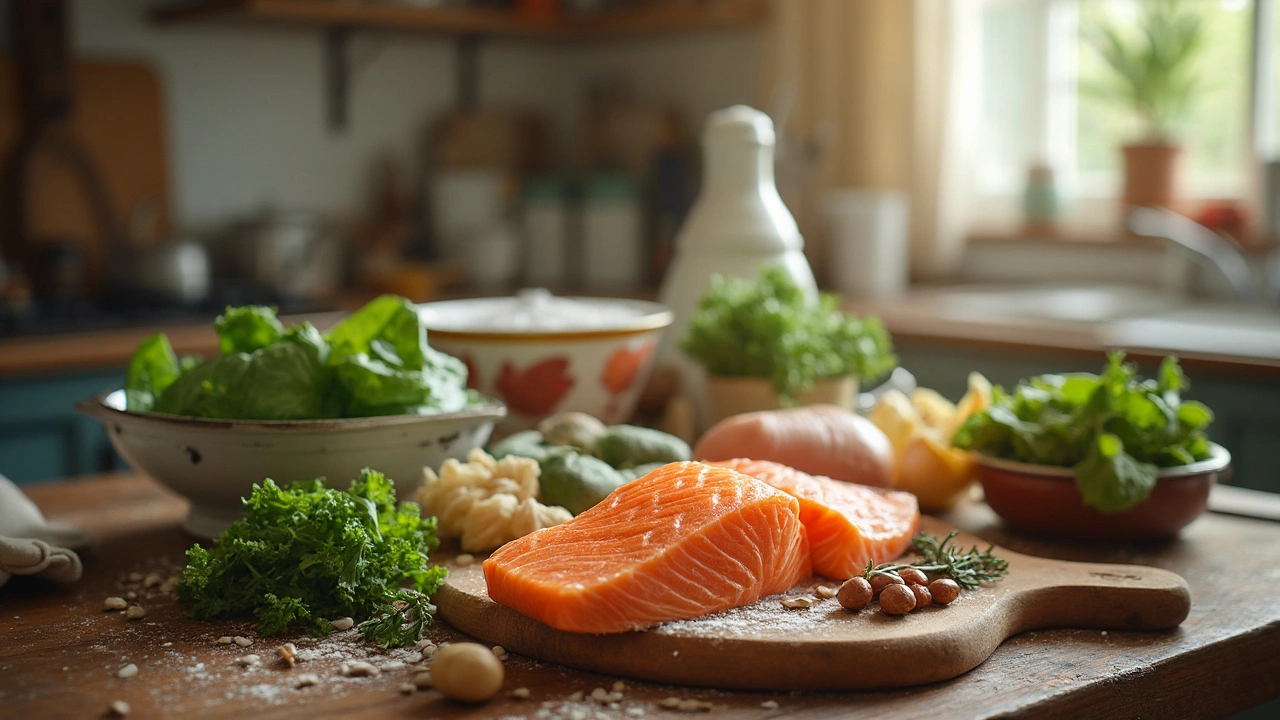Foods to avoid when taking medications: simple rules that help
Some everyday foods can change how your medicines work. That can mean the drug won’t work, or it could hit harder and cause side effects. You don’t need to memorize everything—just a few rules and a quick chat with your pharmacist will keep you safe.
Common risky food–drug pairs
Grapefruit and grapefruit juice: This one comes up a lot because grapefruit blocks enzymes that break down many drugs. If you take statins, some blood pressure meds, certain anti-anxiety pills, or immunosuppressants, grapefruit can raise drug levels and increase side effects. Avoid grapefruit while on those meds unless your doctor says it’s safe.
Dairy, calcium and some antibiotics: Tetracyclines and some fluoroquinolones stick to calcium and other minerals. Drinking milk or taking a calcium supplement around the same time can stop the antibiotic from getting into your body. A good rule: don’t take these antibiotics within two hours of dairy, calcium, iron, or antacids.
Leafy greens and warfarin (blood thinner): Foods high in vitamin K—think spinach, kale, broccoli—reduce warfarin’s effect. That doesn’t mean never eat them. It means keep your vitamin K intake steady so your doctor can adjust the dose. Big, sudden changes are the problem.
MAOIs and tyramine-rich foods: If you’re on older antidepressants called MAO inhibitors, avoid aged cheeses, cured meats, and fermented soy. Those foods contain tyramine and can cause dangerous blood pressure spikes with MAOIs.
Alcohol and many meds: Alcohol can worsen drowsiness, increase liver damage, or reduce how well a drug works. Watch out with painkillers like acetaminophen (liver risk), metronidazole (bad reaction), sedatives, and certain antidepressants. When in doubt, skip alcohol while on a new prescription until you confirm it’s safe.
Practical tips to avoid problems
Read the label and ask one question: "Any foods I should avoid?" Pharmacists hear this all day and will give the exact timing you need. Keep a simple list on your phone of medicines and any no-go foods so you can check quickly when you travel or eat out.
Time your doses. Many meds are fine if separated from food by 1–2 hours. For example, take levothyroxine first thing in the morning on an empty stomach and wait 30–60 minutes before breakfast. Take antibiotics that bind minerals at least two hours apart from dairy or supplements.
If you’re switching drugs, changing diet, or starting supplements, mention it to your prescriber. Small diet changes—more greens, more supplements—can throw off some medications. A short call or message can avoid a big problem.
Bottom line: you don’t need to fear food, but be aware. A few smart habits—checking labels, timing doses, and asking your pharmacist—will keep medicines working as they should.
